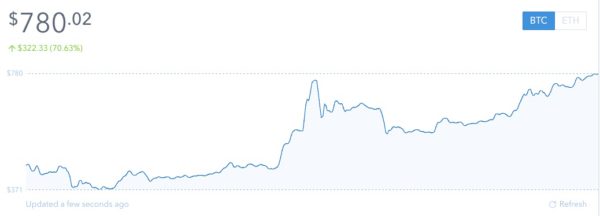Reblogging from USV.com today:
Union Square Ventures has made a substantial investment in Tucows, a 23 year old company company that has been publicly traded for over 15 years. Since we have never before invested in a public company, that requires a bit of an explanation.
All of us at USV feel fortunate to have participated in the wave of innovation unleashed by the open Internet. That innovation is now threatened by consolidation at the application layer and the access layer. Watching football over the weekend and seeing every carrier advertise video and music services on national television that don’t count against your data cap punctuated, for me, the end of the era of permissionless innovation that gave rise to Twitter, Tumblr, Etsy, and Kickstarter. As Fred pointed out when large companies can pay to play, start-ups ability to reach consumers has been seriously compromised.
We are investing in Tucows because we believe they have built a great business, but also because they have been a stalwart defender of the open Internet. We are excited to be working with them now because they are challenging the incumbent access providers and the conventional wisdom, by building modern fiber networks in local communities across the U.S.. They are doing this at a time when telephone and cable companies are exploiting their natural monopolies in these communities, underinvesting in their outdated networks, raising prices and using the excess profits to buy back their stock, and buy their way into global entertainment businesses, pleasing shareholders but doing nothing for the communities they serve.
Tucows is doing the exact opposite. They are using hard won profits from the competitive wholesale domain name business to invest in modern fiber networks in cities like Charlottesville VA, Holly Springs, NC, and Centennial, CO. They believe, as we do, that, a modern communications infrastructure is the most important investment any community can make to expedite the transition from a 20th century economy based on undifferentiated manufacturing to a 21st century economy based on highly specialized manufacturing and services.
While they are at it, Tucows is exploding the myth propagated by the cable and telephone companies that the only way to finance a fiber network is to return to the gatekeeper model of the cable industry where the network build is subsidized by fees extracted from content providers in exchange for access to consumers. Tucows is committed building open networks that offer unfiltered, unthrottled, and unfettered access to consumers. Open networks preserve the defining feature of the open Internet, permissionless innovation. It is that feature that ensures applications layer services have the freedom to innovate. More importantly, without open access to the Internet, no community can protect the economic, political, or personal freedom of their citizens. And without those freedoms, communities will have little chance to successfully manage the transition to a modern 21st century economy. Individuals in these communities will need unfettered access to knowledge to retool their skills for the new opportunities. Gig workers will need to access multiple platforms to optimize the return on their labor. Specialized manufacturers will need to fit seamlessly into global supply chains. All of this will need to happen quickly if we are to minimize the economic dislocation these communities are already grappling with. None of this will happen, if access to the Internet is mediated by vertically integrated global conglomerates.
The cable and telephone companies would like us to believe the open Internet is threatened by over reaching government regulation. In fact, it is threatened by crony capitalism. Instead of investing in local communities, the incumbents deploy thousands of lobbyists to argue that communities should not be able to invest in their own future. We are thrilled to be working with Tucows, because instead of lobbying Washington, to prevent competition, they are actively investing in fiber networks, the critical 21st century community infrastructure, and while they are at it, proving that investing in community fiber networks is a great business.
